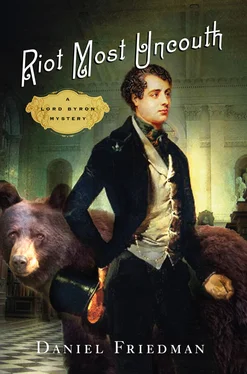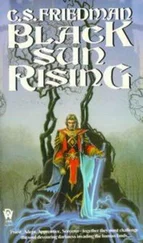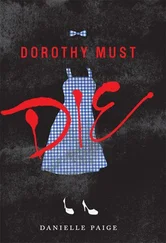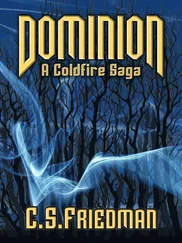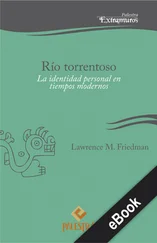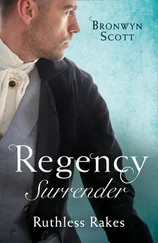Daniel Friedman - Riot Most Uncouth
Здесь есть возможность читать онлайн «Daniel Friedman - Riot Most Uncouth» весь текст электронной книги совершенно бесплатно (целиком полную версию без сокращений). В некоторых случаях можно слушать аудио, скачать через торрент в формате fb2 и присутствует краткое содержание. Год выпуска: 0101, ISBN: 0101, Издательство: St. Martin, Жанр: Исторический детектив, на английском языке. Описание произведения, (предисловие) а так же отзывы посетителей доступны на портале библиотеки ЛибКат.
- Название:Riot Most Uncouth
- Автор:
- Издательство:St. Martin
- Жанр:
- Год:0101
- ISBN:9781250027580
- Рейтинг книги:5 / 5. Голосов: 1
-
Избранное:Добавить в избранное
- Отзывы:
-
Ваша оценка:
- 100
- 1
- 2
- 3
- 4
- 5
Riot Most Uncouth: краткое содержание, описание и аннотация
Предлагаем к чтению аннотацию, описание, краткое содержание или предисловие (зависит от того, что написал сам автор книги «Riot Most Uncouth»). Если вы не нашли необходимую информацию о книге — напишите в комментариях, мы постараемся отыскать её.
Riot Most Uncouth — читать онлайн бесплатно полную книгу (весь текст) целиком
Ниже представлен текст книги, разбитый по страницам. Система сохранения места последней прочитанной страницы, позволяет с удобством читать онлайн бесплатно книгу «Riot Most Uncouth», без необходимости каждый раз заново искать на чём Вы остановились. Поставьте закладку, и сможете в любой момент перейти на страницу, на которой закончили чтение.
Интервал:
Закладка:
He wore his grief like a coal miner wears a dinner jacket: with considerable discomfort and no small measure of irony. I couldn’t tell if he was insincere, or if he was merely trying to impress me with his inelegant approximation of wit.
“You must send him my deepest condolences,” I said.
The girl brought me a bottle and a glass, and then retreated from the room. I was peeved to have to pour it myself, but the wine was, indeed, of the highest quality. Being well mannered, I quickly began matching my host, drink for drink.
“Is that your bear you’ve brought with you?” he asked. “How terribly eccentric it is to keep such a creature. It is precisely the sort of weirdness one might expect you to engage in. You know, it’s been my aspiration to join your glamorous circle of associates for some time, but you are always so contemptuous toward everyone, and I find you difficult to approach.”
I decided to respond to only the least offensive of his various observations: “Yes,” I said. “It is a bear.”
“Christ.” He seemed genuinely impressed, and he lifted himself into a seated position for a better look. “Is it safe to have him around?”
“There’s an implicit limitation on how safe a live bear can be. But he’s reasonably placid, so long as he’s well fed.”
“Should I feed him?”
“He’d also never refuse such an offer,” I said.
Sedgewyck, seeing the wisdom in my words, summoned his girl to fetch some meat. She found a lamb shank in the cool part of the pantry; a fresh one, which the Professor preferred to salted varieties.
We watched as she approached the bear, holding the meat at arm’s length and moving with small, halting steps. Sedgewyck laughed aloud. Her fear seemed to amuse him.
“What’s your name?” I asked her.
“Noreen,” she said.
“You needn’t be afraid, Noreen,” I told her. “The Professor is a civilized sort of beast, and he mauls people only on the rarest of occasions.”
She threw the lamb at the bear and then scurried out of the room. The Professor settled down to gnaw his prize and sharpen his claws on the walls.
Sedgewyck waited just long enough for Noreen to get wherever she’d run off to, and then he began ringing a little bell to summon her back. As he did this, he grinned at me, as though the two of us shared some secret.
After a moment, she returned. It was really unusual that she was there at all; it was customary for a gentleman to staff his Cambridge residence with only a single manservant while studying at the College. I, for example, was attended by a wheezing seventy-year-old valet named Joe Murray, whom I had inherited from my great-uncle, the previous Lord Byron. A larger retinue would seem fussy, and would crowd even the most spacious student rooms. If young men were ordinarily allowed to keep nubile servant girls like Noreen in their quarters, nobody would ever get married.
“So, is it the murder that has finally made me worthy of your esteemed attention?” Sedgewyck asked.
I drained my wineglass and refilled it. “Do you desire attention?”
“I’ve got lots of desires, but my desire for attention is among the most urgent.” He smiled at me again, as if he and I were engaged together in some sort of conspiracy.
I was starting to grow bored of the conversation, so I said: “Is that why you killed Felicity? Because you wanted to be noticed?”
Sedgewyck was so surprised at the accusation that he spat a mouthful of wine onto Noreen’s apron. “You think I killed her? Why on earth would I do such a thing?”
“Perhaps you’d grown sick of making love to her, and wanted to be rid of her,” I said. “I couldn’t blame you for wanting to unencumber yourself, but there are other ways to break an engagement.”
He laughed. “Don’t be ridiculous. I never tasted Felicity’s fruits. Nobody did. Her knees were tougher to pry open than the sturdiest of padlocks. Marriage was a precondition to rummaging that girl’s nethers. I courted her chastely, and I was most gentle and proper in my pursuit. I’m disappointed to have missed my chance, and in any case, her death is injurious to my interests.”
“And what interests are those?” I asked.
“I seek to improve my social standing, of course,” Sedgewyck said. The dilated pupils of his eyes seemed to contract partway, and his brow knit with concentration. Other than the deliberate and self-evident care that he put into preventing himself from slurring his words, he seemed remarkably lucid for a drunk. “My grandfather was a Dutch sailor. He made a few lucrative voyages before he settled in London and left a small fortune to my father, who made it much larger through prudent business maneuvers. But wealth means little in England unless it is properly aged, and the Sedgewycks and their new money are unwelcome among London society. My father perceives this as a slight, and my mother finds it humiliating.”
He tilted his body into a seated position on the damp sofa cushion and mopped at his purple-stained lips with the back of a hand. He was a tall, striking man with white-blond hair and high, sharp cheekbones. If his eyes weren’t so red and his nose weren’t so inflamed, he’d have been nearly dashing enough to pass for the sort of person he seemed to want to pretend to be.
“There are two ways to become respectable in England. The first is to befriend the King and get him to bestow an honor upon you. The second is to marry into a good family, which has become my parents’ greatest aspiration for me. It’s easier to do that than it used to be, since people like my parents have amassed great wealth while people like Lord Whippleby have squandered theirs. Felicity’s father drank away his fortune. He needed our money, and we wanted his friends and his name. Felicity had only one older sister, a woman who has given her husband no children. With only a little luck; a fortuitous case of tuberculosis, perhaps, my own son might have been a baron. But now, Felicity is dead and my family’s hopes are dashed.”
I imagined what it might be like to punch him. I suspected it might hurt a little. He was thin and rangy, and his face was all angles, without flat or soft surfaces to properly accommodate a fist. “You’ve clearly suffered a great loss,” I said.
“Felicity had a pretty laugh,” Sedgewyck told me. “And sometimes, she played the piano.” As he said this, he looked almost wistful, and I wondered if perhaps my suspicions were mistaken, and he might be innocent.
But then, he smiled at me again. “Tell me, Lord Byron, is it true you’re about to be kicked out of school?” he asked. “I’ve heard the faculty has finally tired of your outrageous conduct.”
I finished my wine, rose from my seat, and left him there without giving any further response.
Chapter 3
It is very iniquitous to make me pay my debts-you have no idea of the pain it gives one.
- Lord Byron, from an 1818 letter to Douglas Kinnaird, his literary agentIt was my intense displeasure upon returning to my residence to find that cherished sanctum befouled by the uninvited presence one Frederick Burke, Esq., a solicitor retained by Banque Credit Francaise to correct his client’s foolish decision to loan me money.
Joe Murray, my manservant, apologized as he introduced the guest. The lawyer, like most vermin, had refused to leave, despite Murray’s repeated, polite requests. Burke offered his hand, and I made an elaborate show of not shaking it.
“I must say, whatever is cooking smells quite delicious,” said Burke, who seemed to be possessed of the fantastic notion that I might invite him to join me at my table.
“I agree,” I agreed. “I hope you will be kind enough to leave before it gets cold.”
Читать дальшеИнтервал:
Закладка:
Похожие книги на «Riot Most Uncouth»
Представляем Вашему вниманию похожие книги на «Riot Most Uncouth» списком для выбора. Мы отобрали схожую по названию и смыслу литературу в надежде предоставить читателям больше вариантов отыскать новые, интересные, ещё непрочитанные произведения.
Обсуждение, отзывы о книге «Riot Most Uncouth» и просто собственные мнения читателей. Оставьте ваши комментарии, напишите, что Вы думаете о произведении, его смысле или главных героях. Укажите что конкретно понравилось, а что нет, и почему Вы так считаете.
